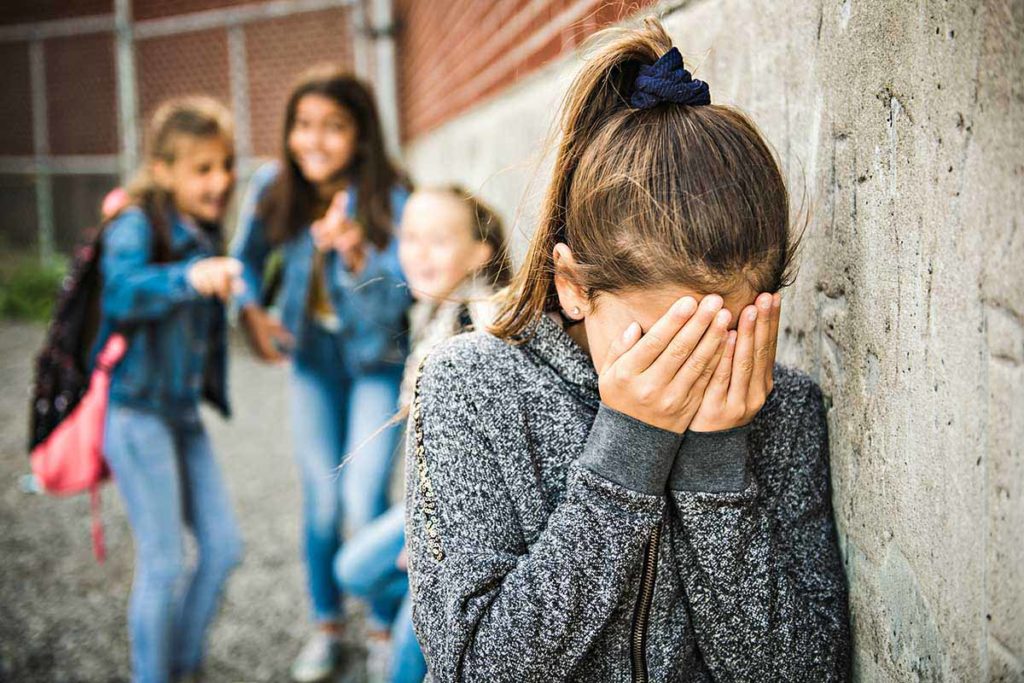Bullying has a long history in the United States and remains prevalent despite targeted efforts to reduce it. Traditionally bullying has occurred in places where children and teens congregate, and there is minimal adult supervision, such as on the playground, in hallways between classes, during after-school activities, or in hangout spots outside of school. Cyberbullying has vastly expanded the opportunity for bullies to victimize their targets around the clock in any environment.
At Imagine Nampa, we know that the emotional and psychological impacts of bullying are serious and can be long-lasting, especially when left undetected or untreated. We also understand that bullying is often a sign or symptom of underlying trauma or mental health issues. We provide comprehensive mental health treatment programs to Idaho teens aged 12-17. If your teen is the victim, perpetrator, or both of bullying, we can help. Call 888.503.4604 to learn more.
What Is Bullying?
Bullying is a form of violence considered an adverse childhood experience (ACE). In 2014, the Centers for Disease Control (CDC) and the Department of Education published the first federal definition of bullying. The three core elements of this definition are:
- An observable or perceived power imbalance
- Unwanted aggressive behavior
- Repetition or high likelihood of repetition of bullying behaviors
Bullying impacts everyone involved, including victims, perpetrators, and witnesses. Contrary to popular belief, there is no single profile of a bully. Those who bully can be socially marginalized or popular, and victims of bullying can be bullies themselves.
10 Ways to Stop Bullying
Kids will be kids is a well-known saying historically used to suggest that bullying is a normal part of childhood that kids need to learn to deal with and accept. However, this line of thinking began before we fully understood the implications of bullying and could not be further from the truth. Bullying victims fear never knowing when to expect the next attack, which is psychologically damaging. Further, with the internet and social media, there is now no safe space to find relief from bullying.
Parents, teachers, school personnel, community members, and kids themselves all need to play a role in preventing and reducing the incidents of bullying. Consider the following ten ways to stop bullying:
- Schools should present a clear and consistent definition of bullying and provide staff training to identify between teasing and bullying.
- Do not label individuals as bullies or victims; instead, address specific behaviors such as harassment or class disruption.
- Set clear, age-appropriate, and enforceable rules and expectations with well-defined consequences.
- Parents and guardians need to model appropriate behavior and educate themselves and their children about the signs, symptoms, and impacts of bullying.
- Give kids the proper tools to manage bullying to effectively shift the balance of power in their favor when they are victims.
- Set limits for the amount of time kids spend on the internet, social media, and gaming platforms, set age-appropriate filters, and monitor their content.
- Have open communication channels, including non-verbal ones, where kids feel heard and safe about reporting bullying.
- Report bullying: kids to parents, teachers, or other trusted adults, parents to schools, and teachers to parents.
- Raise awareness about the impacts of bullying through school assemblies, community events, and family conversations.
- Know your state laws and school district policies regarding bullying and ensure they are followed appropriately.
It is unrealistic to think that bullying will completely disappear, but these are some ways to lessen its prevalence. Education about the causes of bullying and its impacts can go a long way toward prevention.
Reach Out to Imagine Nampa Today
At Imagine Nampa, we know that the face of bullying has changed with cyberbullying, making almost everyone susceptible. Being the victim of bullying can lead to severe mental health crises and even suicide. The act of bullying is often the symptom of a larger problem, such as trauma or mental health disorders. If your teen has been impacted by bullying, we can help. Call 888.503.4604 to learn more about our mental health treatment programs.

